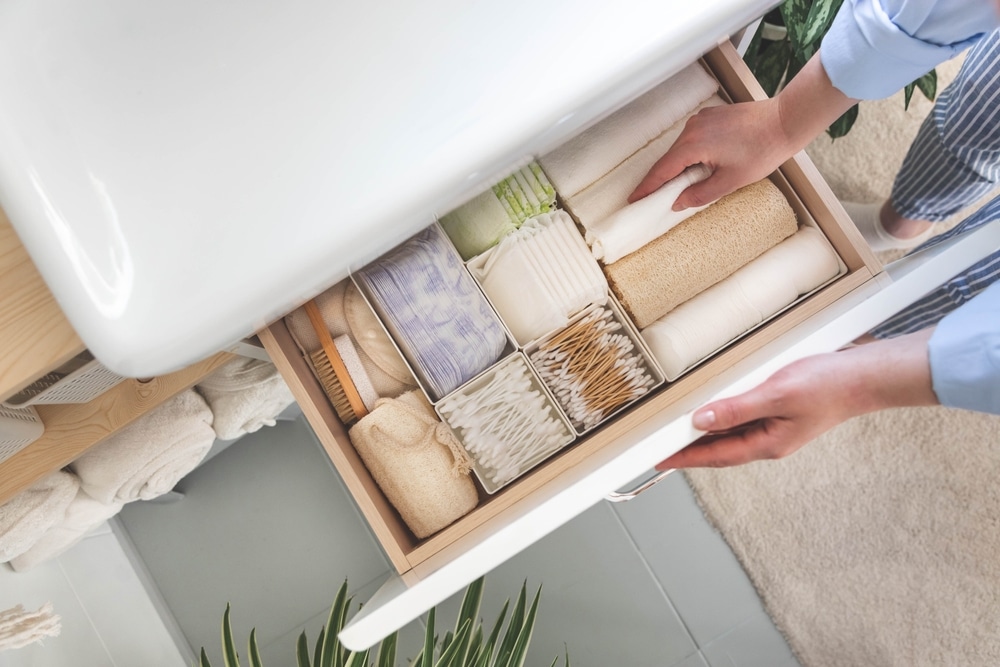In a world bursting with possessions, it’s no surprise that many people struggle to find the motivation to clean up their spaces. You might glance at a pile of papers or a crowded closet and instantly feel your energy drop. But clearing away the mess doesn’t have to drain you. With calm planning and practical strategies, you can make steady, stress free progress. This guide shares helpful insights and gentle approaches for getting organized without pressure. Whether you want to transform one drawer or your whole home, you can do it at your own pace, using smart decluttering tips that make everything feel lighter.
Understanding Why Overwhelm Happens
It’s easy to assume clutter is a physical problem, but it often begins in the mind. When you’re faced with too many decisions at once, your brain gets stuck. That’s why a room full of things can feel impossible to handle. Instead of blaming yourself, recognize that this is a natural response. One of the most effective decluttering tips is to lower the number of decisions you make in any given session. By simplifying your choices, you take back control and create a sense of calm as you work.
Start Small and Build Momentum
People often begin with the biggest, messiest space and quickly burn out. A more effective approach is to choose a tiny area you know you can finish. A single shelf, one kitchen drawer, or even your purse can be a great starting point. Using a handful of decluttering tips designed for small wins will help you build confidence. When you see immediate progress, your motivation returns naturally. Instead of being overwhelmed, you start feeling proud of your effort, which makes the next step much easier.
Why Categories Work Better Than Rooms
Sorting by category allows you to see the full scope of what you own. For example, gathering all your cleaning supplies in one place lets you notice duplicates or expired items. This method makes decision making clearer and reduces emotional pressure. Many seasoned organizers rely on decluttering tips that use category based sorting rather than room based cleaning. This way, you focus on one type of item at a time, which keeps the process structured and less exhausting.
Decluttering Tips for Emotional Items
Emotional attachment is one of the biggest challenges people face. Whether it’s childhood drawings, inherited items, or clothing that represents a different stage of life, these objects carry meaning. Instead of forcing yourself to be harsh, approach these items with compassion. Ask gentle questions about why you’re holding onto them. When you give yourself the space to reflect, it becomes easier to decide which things truly support your life. Using guiding decluttering tips centered on kindness can make a huge difference in your experience.

Decluttering Tips for Decision Fatigue
Decision fatigue creeps in slowly. The more choices you make, the harder each one becomes. To protect your energy, create simple rules. For example, if something is broken and you haven’t fixed it in six months, it goes. If you have more than three of the same item, donate the extras. These kinds of decluttering tips take the pressure off by letting pre made rules guide your decisions. You conserve mental energy and move more quickly through your space.
Decluttering Tips That Fit into Busy Schedules
Many people think they need giant blocks of free time to get organized. The truth is that short bursts can be just as productive. Set a five minute timer and choose one spot to straighten. When the timer ends, stop, no matter how much is left. These short sessions add up faster than you’d expect. Small, manageable decluttering tips like these prevent burnout and make organization a regular part of your routine.
Creating Systems That Keep Clutter Away
Once you clear a space, creating a system prevents future mess. It doesn’t need to be fancy. A simple bin for mail, a tray for your keys, or a designated drawer for chargers can transform your day to day habits. With decluttering tips that focus on simple systems, your home becomes easier to maintain. The goal is not perfection, but ease. When everything has a place, returning items becomes second nature.
Why Perfection Slows You Down
Many people delay organizing because they think they need the perfect storage containers or the perfect mood. But progress happens when you start before everything feels ideal. A slightly organized space is better than no organization at all. By embracing decluttering tips that encourage progress over perfection, you free yourself from unrealistic expectations. You can always fine tune later.
Handling Clutter in Shared Spaces
Shared areas like living rooms, kitchens, and bathrooms can be tricky because multiple people contribute to the mess. The best approach is communication and clear expectations. Work together to create simple rules everyone can follow. Using inclusive decluttering tips helps ensure every household member feels involved rather than criticized. When everyone understands the system, the space stays tidy with less effort.

Preventing Clutter Before It Starts
One of the most underrated tools in your organizational toolkit is prevention. Before bringing new items into your home, pause and consider whether you truly need them. Ask yourself what purpose the item serves. Prevention based decluttering tips keep things manageable long term. The fewer unnecessary items you bring home, the less you need to organize later.
Making Decluttering Enjoyable
Decluttering doesn’t have to be a chore. Turn on your favorite playlist, open the windows, or reward yourself after finishing a task. A little joy goes a long way in staying motivated. Some people thrive using decluttering tips that involve gamifying the process, like challenging themselves to fill one donation bag each week. When you make it fun, it stops feeling like a burden.
Using Decluttering Tips for Daily Maintenance
Daily maintenance keeps clutter from returning. This might look like putting things back right after using them or spending two minutes resetting before bed. Maintenance based decluttering tips prevent future overwhelm. The more consistently you tidy small areas, the less likely messes are to pile up.
Decluttering Tips for a More Mindful Home
Clutter affects more than your space. It impacts your energy, productivity, and stress levels. When you choose to declutter with intention, you create a more peaceful environment. Mindful decluttering tips help you pay attention to how your home makes you feel. By keeping only what supports your lifestyle, you design a space that reflects your values.
Decluttering Tips for Staying Motivated
Motivation tends to fade as you work through different areas. To stay on track, celebrate your wins. Take before and after photos or pause to enjoy a newly cleared corner. Supportive decluttering tips remind you that progress is worth acknowledging. The more you appreciate your efforts, the easier it becomes to keep going.
Decluttering doesn’t need to be a massive, intimidating project. With patience, structure, and gentle approaches, you can transform any space without overwhelm. By choosing decluttering tips that fit your lifestyle, you create a calmer, more comfortable environment. Remember to start small, let go of perfection, and give yourself grace throughout the process. The goal isn’t to create a picture perfect home. It’s to make a space that supports your daily life, reflects what matters to you, and allows you to breathe a little easier every time you walk through the door.
Are you not done yet? Do you want to learn other ways to improve your Storage & Organization? Then visit our Storage & Organization category page.



